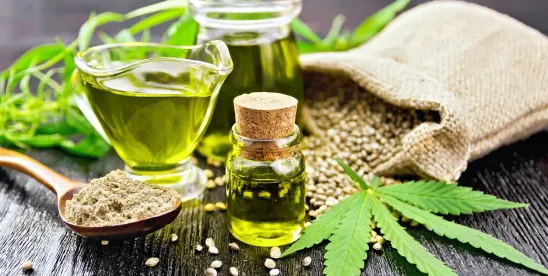All participants of Mississippi’s cannabis industry should take notice of an opinion the Mississippi Attorney General’s Office published on June 11, 2025. The opinion answered three questions Mississippi Rep. Lee Yancey presented: (1) Is the sale of non-FDA approved hemp-derived products designed for human ingestion and/or consumption prohibited in Mississippi; (2) is the possession of non-FDA approved hemp-derived products designed for human ingestion and/or consumption prohibited in Mississippi; and (3) if the answer to the first two questions is yes, are municipalities authorized to enact rules and regulations that prohibit or penalize the sale and/or possession of the same?
The attorney general, relying on Mississippi’s Uniform Controlled Substances Law (MSCSL), answered the first two questions in the affirmative, concluding that the terms of the MSCSL prohibited the sale and possession of such products unless they were being sold or possessed pursuant to the provisions of Mississippi’s medical cannabis laws and regulations. The opinion, however, notes its limitations by acknowledging that components of the analysis are controlled by federal law: “[A] complete response to [Yancey’s] request is outside the scope of an official opinion.”
The opinion focuses on two exemptions to the MSCSL’s prohibition of THC but recognizes a third. THC, the psychoactive ingredient in cannabis, is illegal under the terms of the MSCSL, however, several exemptions to this prohibition exist. Two of these exemptions, forming the basis of the AG’s opinion, make an allowance for hemp products that have been approved for human ingestion and/or consumption by the FDA or products possessed or sold under Mississippi’s medical cannabis laws. The third exemption (mentioned briefly in the opinion) exempts “hemp,” as defined and regulated under the Mississippi Hemp Cultivation Act (MHCA), from the MSCSL. The MHCA defines hemp in a manner similar to the 2018 Farm Bill, stating that hemp includes all derivatives, extracts and isomers. While many have interpreted the third exemption as allowing the sale and possession of hemp as long as it meets the MHCA’s definition (an interpretation adopted across the country under the Farm Bill’s same definition of hemp), the Attorney General’s Office appears to take a different stance.
In a footnote, the attorney general seems to suggest that since the MHCA has not been fully implemented, the exemption referencing the act may not apply. This positioning points towards the attorney general’s stance being that unless a hemp product is approved for human consumption by the FDA or handled pursuant to Mississippi’s medical cannabis laws, its sale and possession are prohibited by the MSCSL – regardless of what the hemp cultivation act says. That said, the opinion reiterates that because the cultivation of hemp in Mississippi “is legalized, licensed, and controlled by federal law [and] this office cannot opine on questions of federal law [,]… to the extent federal law controls the issues presented in your request, a complete response is outside the scope of an official opinion.”
The opinion, while briefly referencing the MHCA, does not explain additional exemptions to the definitions of both THC and marijuana under the MSCSL for hemp. Again, the opinion generally acknowledges that hemp, as defined in the MHCA and 2018 Farm Bill, is not controlled under MSCSL. But because such analysis is, at least in part, controlled by federal law, the opinion ends its discussion with just these acknowledgments.
While the AG’s opinions are not considered binding precedent, this opinion undoubtedly garnered the attention of Mississippi’s consumable hemp industry and medical cannabis industry alike and rightly so. There’s also little doubt that the opinion will be used as support next legislative session when yet another hemp bill is introduced.





 />i
/>i

